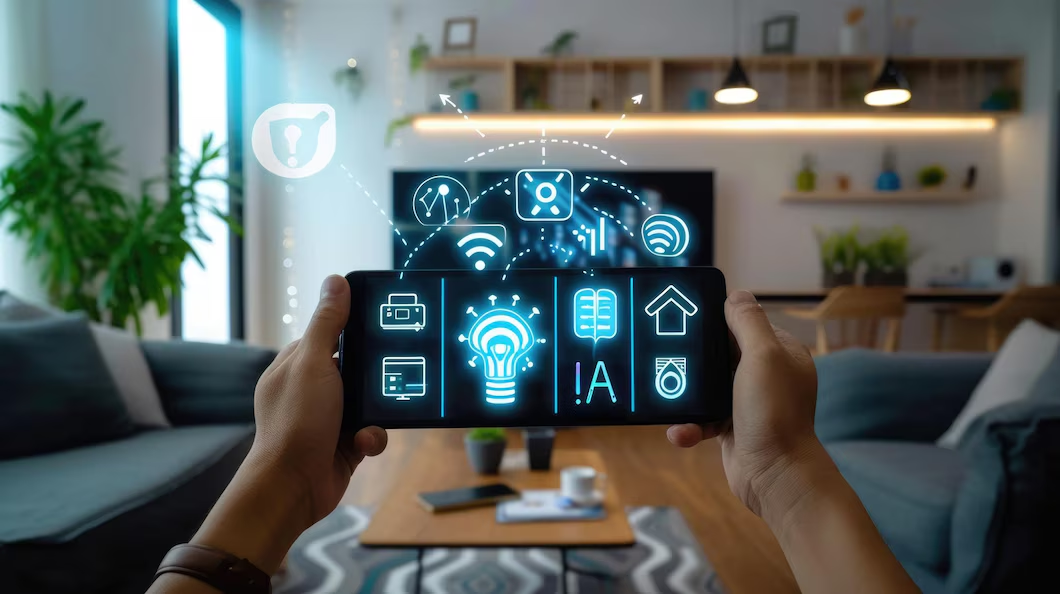The convergence of Artificial Intelligence (AI) and the Internet of Things (IoT) is ushering in a paradigm shift, where intelligent applications and solutions are poised to transform virtually every industry.
This powerful synergy is unlocking new frontiers of real-time data analysis, intelligent automation, and data-driven decision-making, promising to redefine how we interact with the world around us.

Real-Time Data Analysis with AI and IoT
At the core of this revolution lies the ability to harness the vast troves of data generated by IoT devices and extract actionable insights using AI algorithms. IoT sensors and devices, deployed across diverse environments, continuously collect and transmit data on various parameters, ranging from environmental conditions to equipment performance and human behavior.
However, this deluge of data is only valuable if it can be effectively analyzed and translated into meaningful information. This is where AI shines, with its ability to process and identify patterns within vast datasets at unprecedented speeds. By integrating AI with IoT systems, organizations can gain real-time visibility into their operations, enabling proactive decision-making and responsive action.
For instance, predictive maintenance is a prime example of this synergy in action. AI algorithms can analyze sensor data from industrial machinery, detecting anomalies and predicting potential failures before they occur. This not only minimizes downtime and reduces maintenance costs but also enhances safety and extends the lifespan of critical equipment.
Intelligent Task Automation and Decision-Making
Beyond real-time data analysis, the integration of AI and IoT is driving the development of intelligent applications that can automate tasks and make informed decisions based on data-driven insights. These applications leverage machine learning algorithms to continuously learn and adapt, enabling them to optimize processes and operations dynamically.
In the realm of smart cities, AI-powered IoT systems can monitor traffic patterns, adjust signal timings, and reroute vehicles to alleviate congestion, reducing commute times and minimizing environmental impact. Similarly, in precision agriculture, AI algorithms can analyze soil moisture, weather patterns, and crop health data from IoT sensors to optimize irrigation schedules, fertilizer application, and harvesting times, maximizing yields while minimizing resource consumption.
Intelligent applications powered by AI and IoT are not limited to physical environments; they are also transforming digital domains. Chatbots and virtual assistants, for instance, can leverage natural language processing and machine learning to provide personalized, context-aware support, enhancing customer experiences and streamlining operations.
Cross-Industry Applications and Impact
The applications of AI and IoT integration are vast and far-reaching, spanning industries as diverse as healthcare, energy, transportation, and manufacturing.
In healthcare, AI-powered IoT devices can monitor patients’ vital signs, medication adherence, and activity levels, enabling remote monitoring and early intervention. These systems can also assist in disease diagnosis and treatment planning by analyzing medical imagery and patient data.
The energy sector is leveraging AI and IoT to optimize energy production, distribution, and consumption. Smart grids equipped with IoT sensors and AI algorithms can balance energy loads, detect and respond to outages, and integrate renewable energy sources more efficiently.
In transportation, AI and IoT are driving the development of autonomous vehicles, intelligent traffic management systems, and predictive maintenance for fleets. These technologies promise to enhance safety, reduce emissions, and optimize logistics operations.
Ethical and Security Considerations
While the potential of AI and IoT integration is undeniable, it also raises important ethical and security concerns that must be addressed. Privacy and data protection are paramount, as IoT devices collect vast amounts of potentially sensitive information, which could be exploited if not properly secured.
Furthermore, the decision-making processes of AI systems must be transparent and explainable, particularly in high-stakes scenarios such as healthcare or autonomous vehicles, where biased or opaque decisions could have severe consequences.
Ensuring the responsible development and deployment of AI and IoT technologies requires a multifaceted approach, including robust cybersecurity measures, adherence to ethical principles and guidelines, and ongoing collaboration between technology providers, policymakers, and end-users.
Embracing the Future of Intelligent Solutions
The integration of AI and IoT is no longer a futuristic vision; it is a reality that is rapidly transforming industries and shaping the world around us. Technology leaders who embrace this convergence and leverage its potential stand to gain a significant competitive advantage.
By harnessing the power of real-time data analysis, intelligent automation, and data-driven decision-making, organizations can optimize operations, enhance customer experiences, and drive innovation in ways previously unimaginable.
However, this journey requires a holistic approach, encompassing not only the adoption of cutting-edge technologies but also a commitment to responsible development, ethical considerations, and continuous learning and adaptation.
As we navigate this exciting new era, one thing is certain: the synergy between AI and IoT will continue to push the boundaries of what is possible, enabling us to create intelligent solutions that meet the evolving needs of businesses and society at large.
